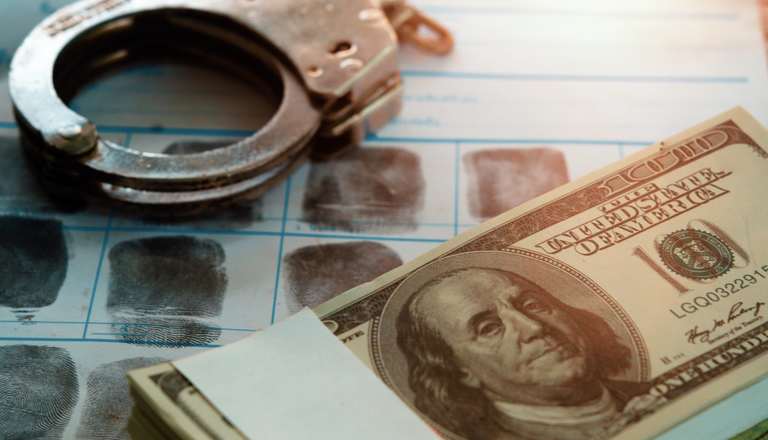
a look at how organized crime gangs can sometimes target the lottery
The allure of the lottery is not just confined to the average player. The chance to turn a small investment into life-changing wealth holds a powerful grip on the public imagination. However, this appeal also attracts the darker side of life: organized crime. While the image of mobsters influencing lottery drawings may be ripe in fiction, the reality is more subtle. Organized crime and the lottery share a complex and often hidden relationship.
Infiltrating the System: How Organized Crime Targets Lotteries
There are several ways organized crime can attempt to target and exploit lotteries:
• Ticket Fixing: This involves manipulating the draw to ensure a predetermined set of numbers wins. This is almost impossible to do with modern lotteries as extremely strict security protocols are put into place.. However, historical cases do exist where lottery insiders have colluded with criminals to fix drawings.
• Bulk Ticket Purchases: Organized crime groups may purchase very large quantities of tickets, statistically increasing their chances of winning. This doesn't guarantee a win whatsoever, but it can improve odds, especially in smaller lottery pools.
• Money Laundering: The lottery can make money laundering east but with considerabl effort. Lottery winnings can be used to launder illicit funds as criminals can purchase numerous tickets with “dirty” money and claim the winnings as “legitimate” imoney. This process, however, raises red flags for authorities due to the sudden influx of cash, especially if a pattern is observed.
• Lottery Scams: Fraudulent lottery scams by phone or email often target vulnerable populations, promising "guaranteed wins" or claiming the recipient has won a foreign lottery but needs to send money upfront to claim the prize. Organized crime groups can be behind these scams, exploiting people's desperation for a quick buck.
Here are a couple of real-world cases that illustrate the potential for organized crime to infiltrate lotteries:
• The Italian Lotto Scandal (2006): One of the most notorious cases involved an attempt to fix the Italian national lottery. A consortium led by a crime syndicate allegedly infiltrated the selection process, aiming to manipulate the winning numbers. The plot was eventually exposed, leading to arrests and highlighting vulnerabilities in lottery security.
• The Florida Lottery Ring (2010): A group of individuals in Florida used stolen credit card information to purchase large quantities of lottery tickets. While they didn't win the jackpot, they profited from smaller wins, demonstrating the potential for bulk ticket purchases to be misused. These cases serve as stark reminders that organized crime is constantly seeking ways to exploit vulnerabilities.
Modern lotteries have implemented various security measures to combat organized crime involvement:
• Strict Random Number Generation: Lottery drawings rely on extremely sophisticated random number generators (RNGs) to ensure the fair selection of numbers. These systems are closely monitored by people and cameras and are audited regularly to prevent any type of manipulation.
• Ticket Security Features: Lottery tickets incorporate a volume of security features like watermarks, holograms, and unique serial numbers to deter counterfeiting and fraud.
• Rigorous Background Checks: Lottery officials undergo thorough background checks to become licensed so as to minimize the risk of insider collusion.
• Law Enforcement Co-operation: Lotteries work very closely with law enforcement agencies to investigate suspicious activity and identify potential scams.
The influence of organized crime extends beyond manipulating lottery drawings. Here are some additional concerns:
• Intimidation and Violence: Organized crime groups may use threats and violence to coerce lottery winners into handing over a portion of their winnings, or make lottery insiders rig draws. This is particularly concerning in areas where organized crime holds significant influence.
• Infiltration of Lottery Retailers: Criminal organizations may infiltrate lottery retailers to participate in money laundering schemes. This can involve using lottery ticket sales to mask the movement of illicit funds.
• Erosion of Public Trust: News of organized crime's attempts to exploit lotteries can erode public trust in the system's legitimacy. This can discourage participation and reduce potential revenue for good causes supported by lottery funds.
These factors highlight the importance of robust security measures and a proactive approach to addressing the broader impact of organized crime on the lottery system. The relationship between organized crime and the lottery is a very complex one. While outright manipulation of drawings is close to impossible in modern systems, the risk of infiltration and exploitation still remains. Lotteries must continue to invest in highly robust security measures, collaborate with law enforcement, and prioritize transparency to maintain public trust. As long as the lure of easy wealth exists, so too will the attempts by organized crime to exploit it. Maintaining a vigilant stance and continuously adapting security protocols are crucial to safeguarding the integrity of lotteries and ensuring they remain a force for good and not evil.
